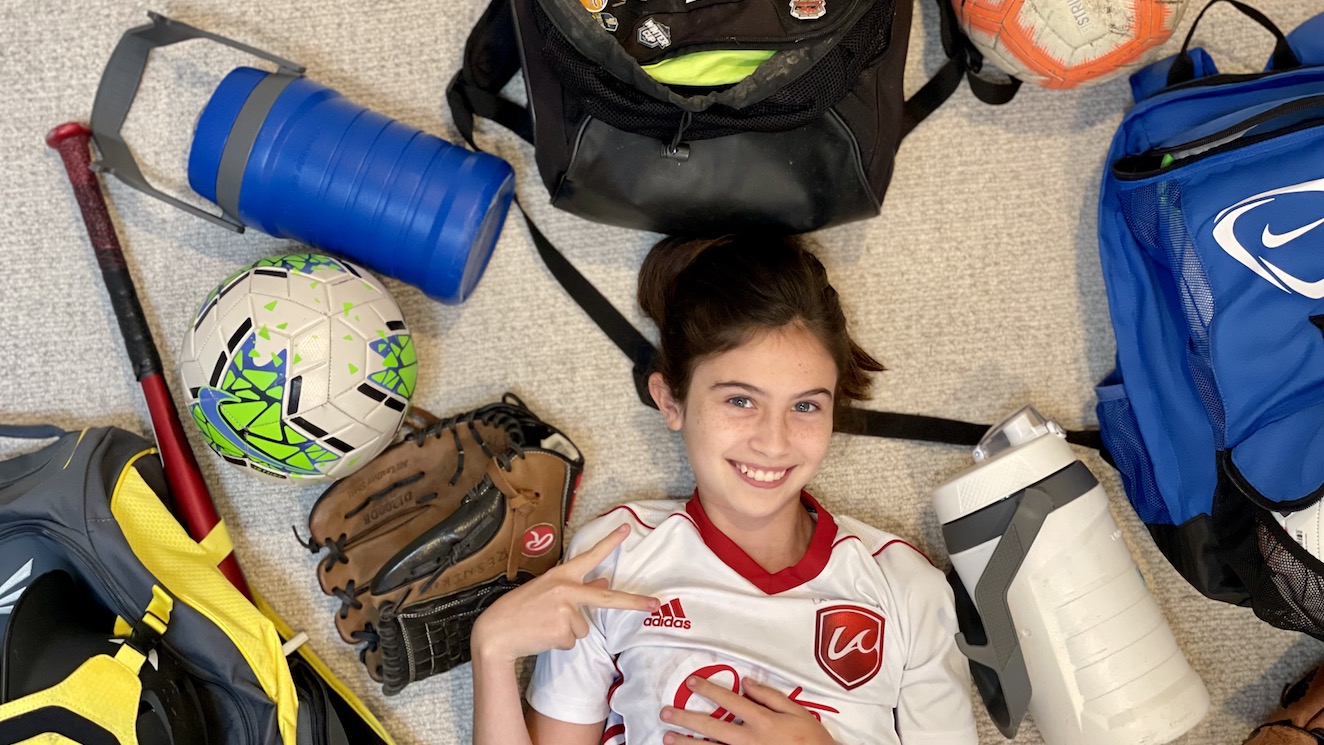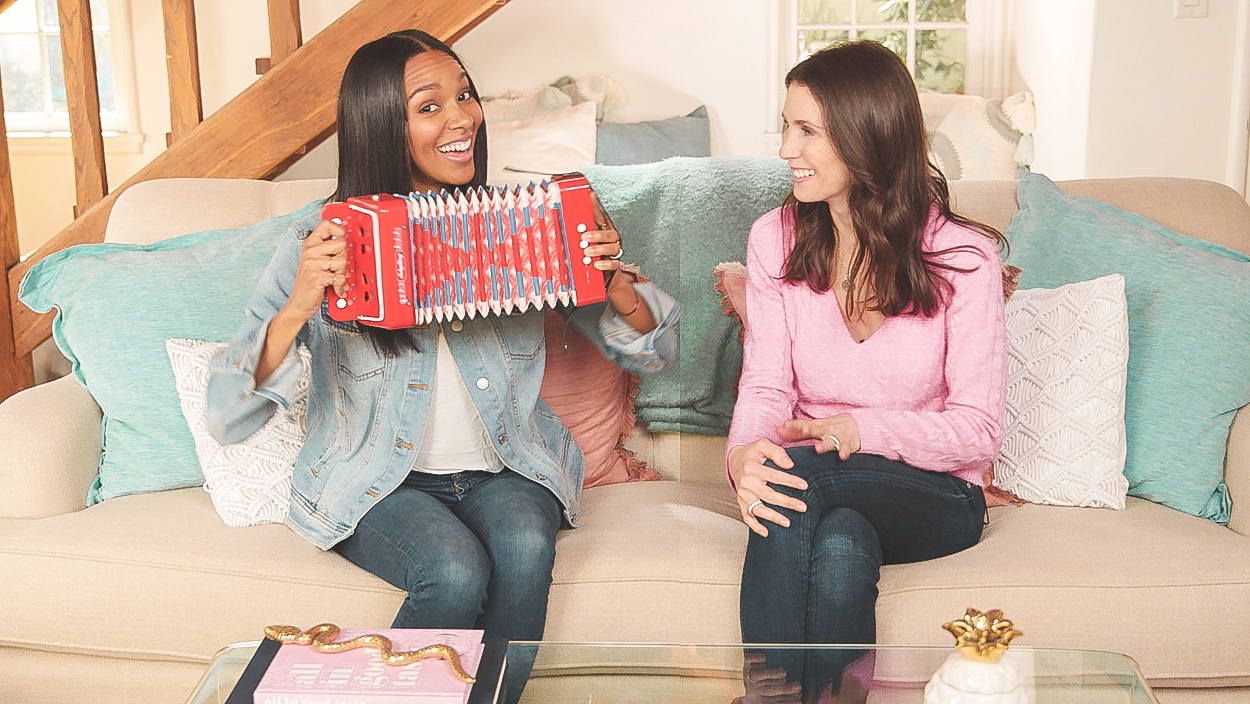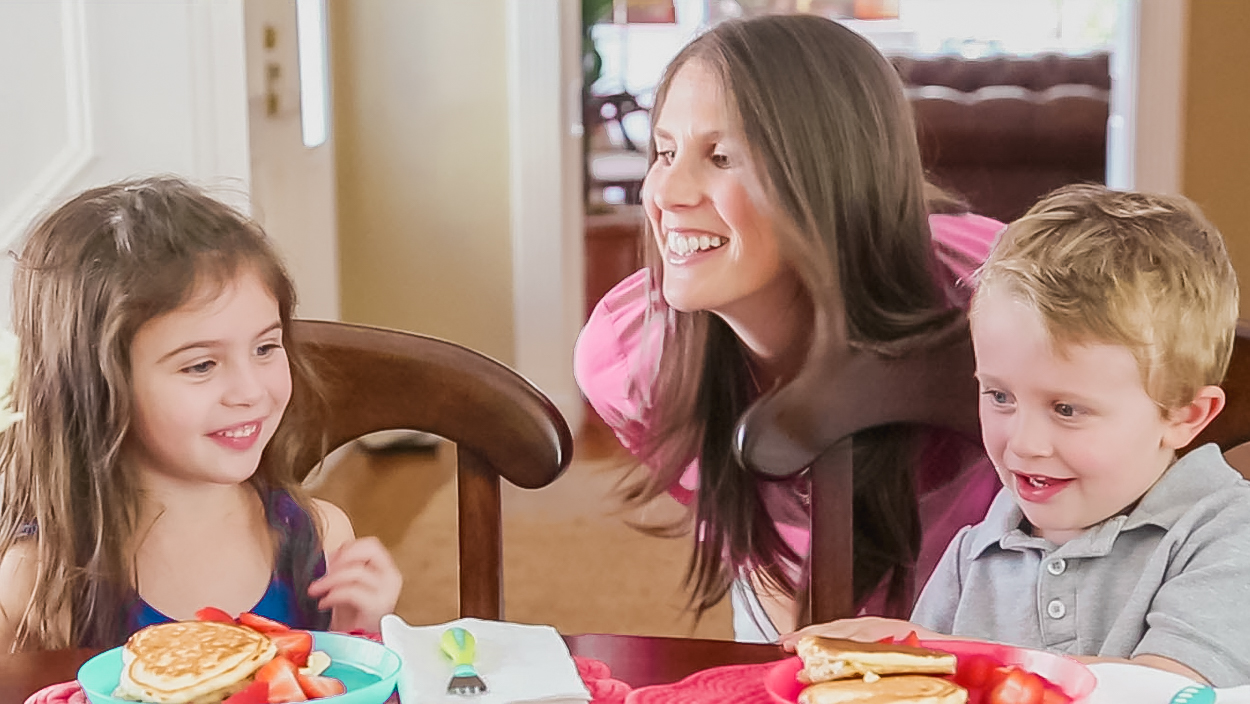

We already know that learning a musical instrument benefits children in all kinds of ways, so it can be super exciting when your kid begins to take an interest in music — whether they’re plunking out chopsticks (or Baby Shark) on the piano or turning every stick outside into a violin bow. But studying an instrument is a commitment. There’s the time, there’s the money, there’s the “music” filling your home… and it can be hard to know where to start.
So what should you think about before signing your little Mozart up for music lessons? Ontario, Canada-based musician and private lessons instructor Peggy Jarvis shares her expert insight on five questions parents often have before their kid starts lessons.
1) What’s the right age to start?
While there isn’t a set “best age” to start formally studying an instrument, Jarvis suggests that age five or six is a good time to start for most kids. Age isn’t the only consideration, though. You’ll want to factor in the kid’s patience; remember that they won’t be making actual music right away, so they need to be at a place where they can understand that — and soldier on despite it. You also need to think about the child’s maturity and attention span. Will they be able to focus during a 30-minute lesson? And practice sessions? If not, wait a bit.
2) What instrument should they start with?
There’s a fine line to toe between going with the instrument that interests your child (important) and choosing one that’s developmentally and physically appropriate for them (also important). For example, a tiny kindergartner is physically not ready to take on a big beast of an instrument like the French horn or cello. Also, wind and brass instruments are better for older kids because of the pressure on the teeth.
But you can build as they learn. For example, while the guitar is too unwieldy for most young kids (it’s a better fit for a 4th or 5th grader), if it’s your child’s passion, start with a ukelele, which might be more manageable in the meantime. Or, if your little one is set on the flute, start with a recorder.
Consider their personality too. A kid with a ton of physical energy may be better suited to a percussion instrument or a guitar or ukelele than something that requires more physical stillness.
Jarvis says the piano is often a great first instrument. “Piano is very difficult but a good one to start with early on. Usually children catch on very quickly when they’re young and piano teaches a lot of coordination between left hand/right hand and reading notes and rhythms in both the treble and bass.”
3) What are the costs involved?
Lessons aren’t cheap. Before broaching the subject with your child, research your local options for lessons and see if you are in a financial position to commit to them. Generally, group lessons will be less expensive than private ones. The experience and expertise of the instructor will be factors too.
As for the cost of the instrument, a piano (expensive, will live in your home for years or forever, will require basic maintenance but is one-size-fits-all) is really different from a violin (can also be expensive, will need to be sized-up as your child grows). For many instruments, renting is a good option, especially at first while you make sure it’s going to stick. Talk to a reputable music store and learn about their rental plans; many are generous and come with 30-day trials and/or repair and maintenance costs built in.
If your kid’s school has a band or orchestra, before you rent OR buy, it’s worth asking whether they have any surplus you can borrow for a fixed term. Who knows, maybe there are a bunch of trombones laying around the school’s storage area.
4) How do I find an instructor?
Your school community is the best way to learn the landscape. Ask fellow parents and teachers and you’re likely to get the names of some folks with good reputations. Also check with your local Parks and Rec program, many offer group music lessons, particularly for things like guitar and piano.
5) Enough about your kid, though. Is your family ready to make the commitment?
So, yeah. The decision doesn’t just involve your child — it impacts the whole family, so don’t discount your own involvement. Take an honest look at your ability to drive your child to lessons (if the instructor doesn’t do home visits). Are you willing to put the time into overseeing or helping with your child’s home practice? Can you be encouraging without nagging? Can you be, as Peggy puts it, a “cheerleader,” and recognize that the process of learning music is not one-size-fits all, but rather requires flexibility? You may discover that your child does well with a regimented practice schedule, or you may discover that they may make better progress with less rigidity. And last but certainly not least, are you ready for the sweet sounds that will be piping through your home (that at first may not sound so sweet)? “Both parents and students need to remember that the process is much more important than exam results,” said Jarvis.







